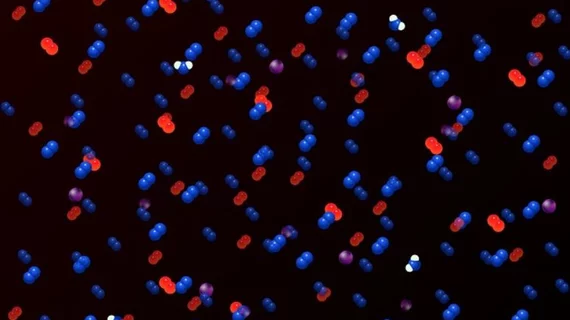A skin test may help clinicians prevent adverse drug reactions in patients receiving radiocontrast material, according to a new study published in the American Journal of Roentgenology.
Sung-Ryeol Kim, with Yonsei University College of Medicine’s Division of Allergy and Immunology in Seoul, South Korea, and colleagues performed intradermal testing (IDT)—which involves injecting a small amount of an allergen under the skin—in patients using both diluted and undiluted radiocontrast media. They found that the latter was more accurate at identifying a potential adverse drug reaction (ADR).
“Conducting IDT with undiluted radiocontrast medium may be more useful for selecting an alternative medium than conducting IDT with a diluted 1:10 radiocontrast medium,” the researchers wrote.
The use of radiocontrast has risen alongside the proliferation of CT scanning. While ADRs are difficult to predict they can be an extremely serious problem. Additionally, the authors noted, many patients with a history of adverse reactions must endure repeated CT exams due to underlying diseases such as cancer.
“Thus, the need for a means to select a relatively safe radiocontrast medium for these patients remains,” Kim and colleagues wrote.
Kim et al. enrolled 36 patients with a history of immediate ADR to radiocontrast media who visited the Allergy and Asthma Clinic of Severance Hospital from 2017 to 2018 in their study. Participants received IDT with five types of diluted (1:10 ratio) and undiluted contrast (iohexol, iobitridol, iopamidol, iopromide and iodixanol). A test was considered positive if at least one contrast medium caused a positive reaction.
IDTs that utilized undiluted material were far superior to tests that used diluted media at a 1:10 ratio. The positivity and sensitivity for undiluted tests were 86.1% and 75%, respectively. For comparison, the diluted method achieved scores of 47.2% for both measurements.
The team also performed a subsequent CT exam in 22 patients whose IDT was negative. Of that group, 95.5% did not experience an ADR.
“IDT should be performed with undiluted radiocontrast medium, and selecting an alternative radiocontrast medium on the basis of IDT results can be clinically useful to prevent recurrent ADRs to radiocontrast media,” the authors concluded.

